Never say never again: Nibali looks for another late turnaround at Giro d'Italia
Italian trails Carapaz by 1:54 ahead of final mountain stage
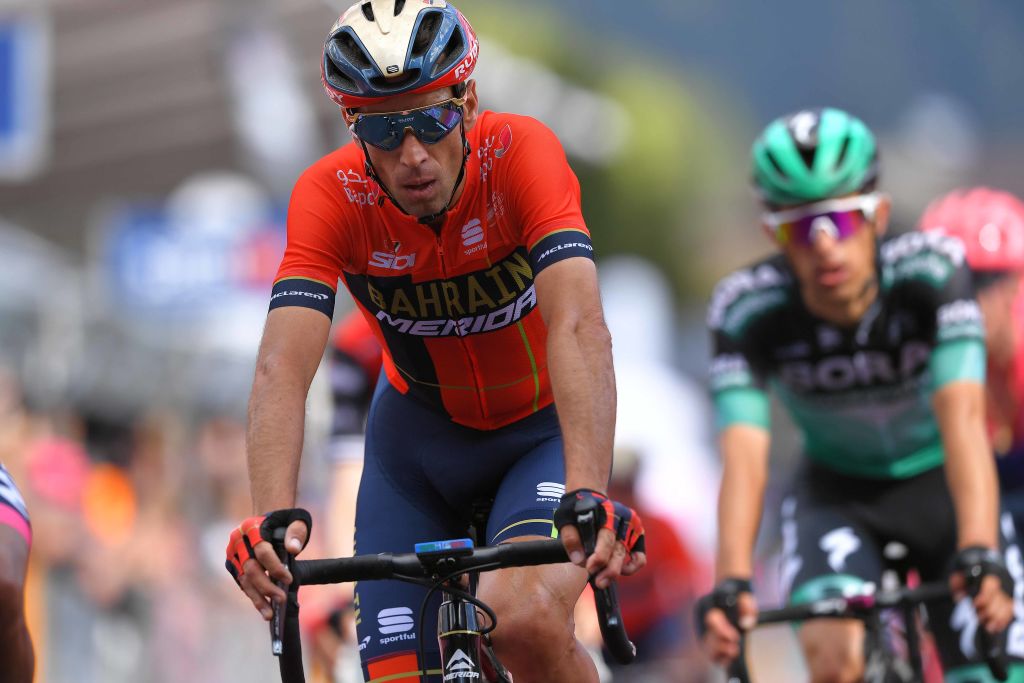
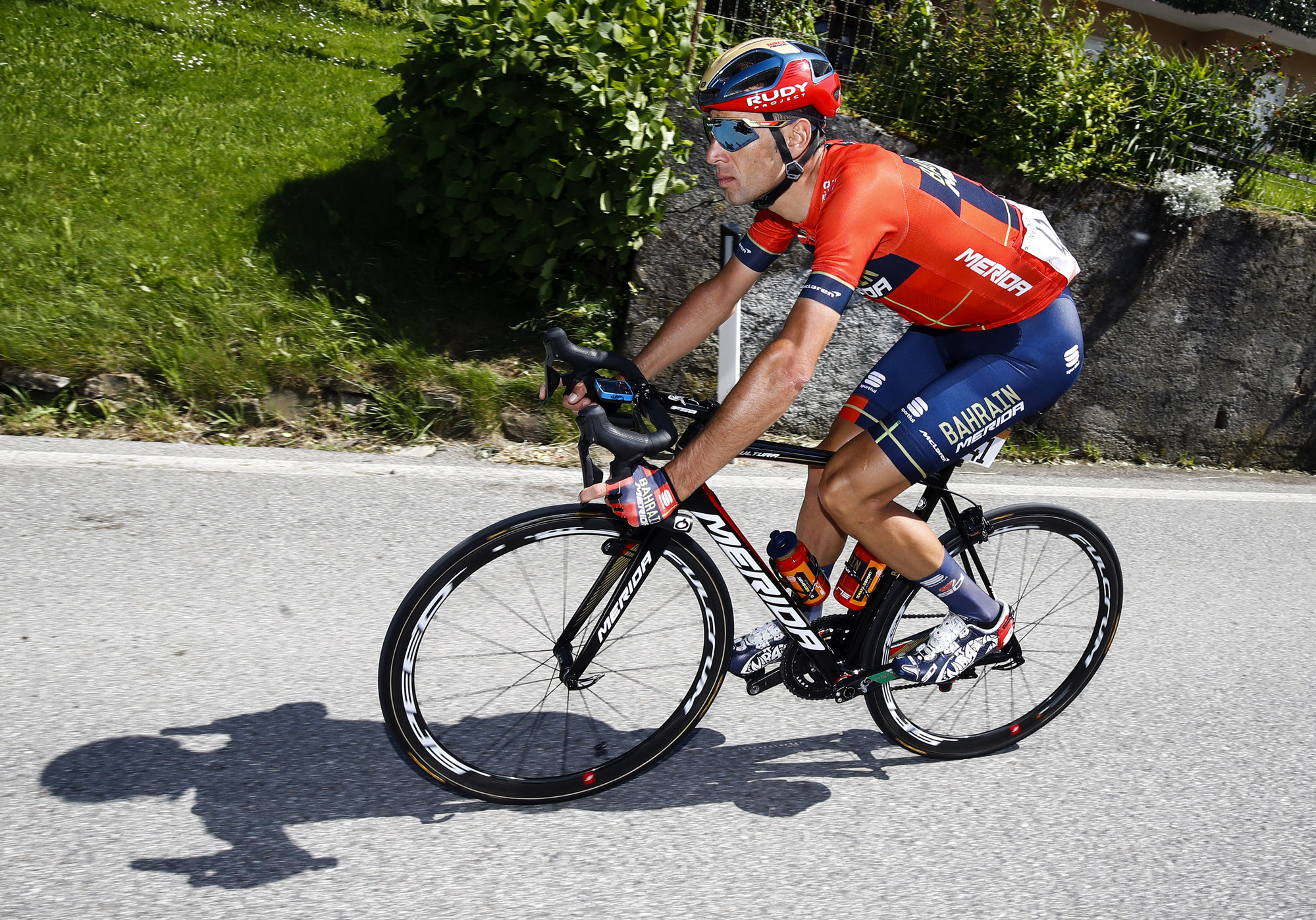
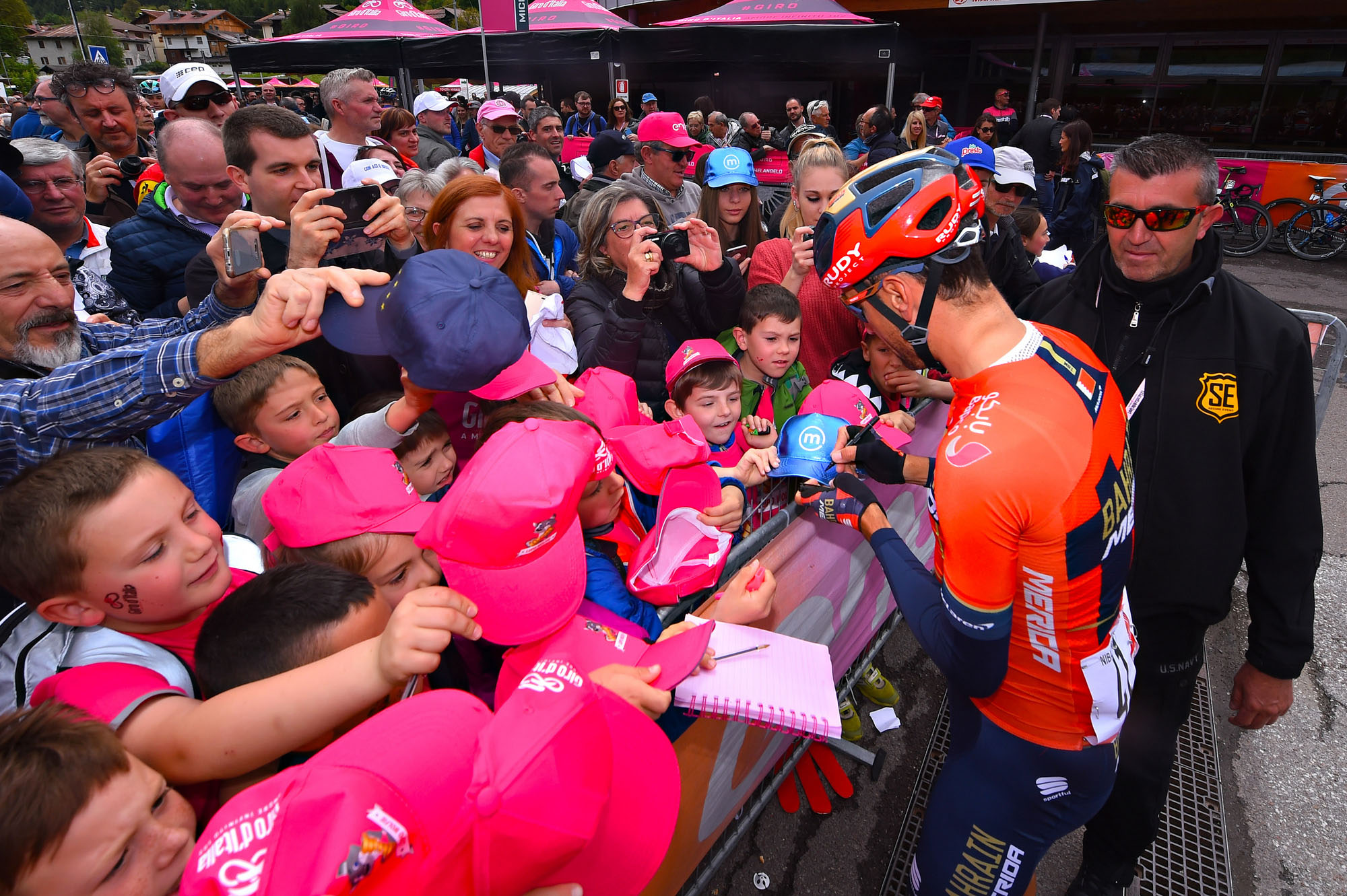
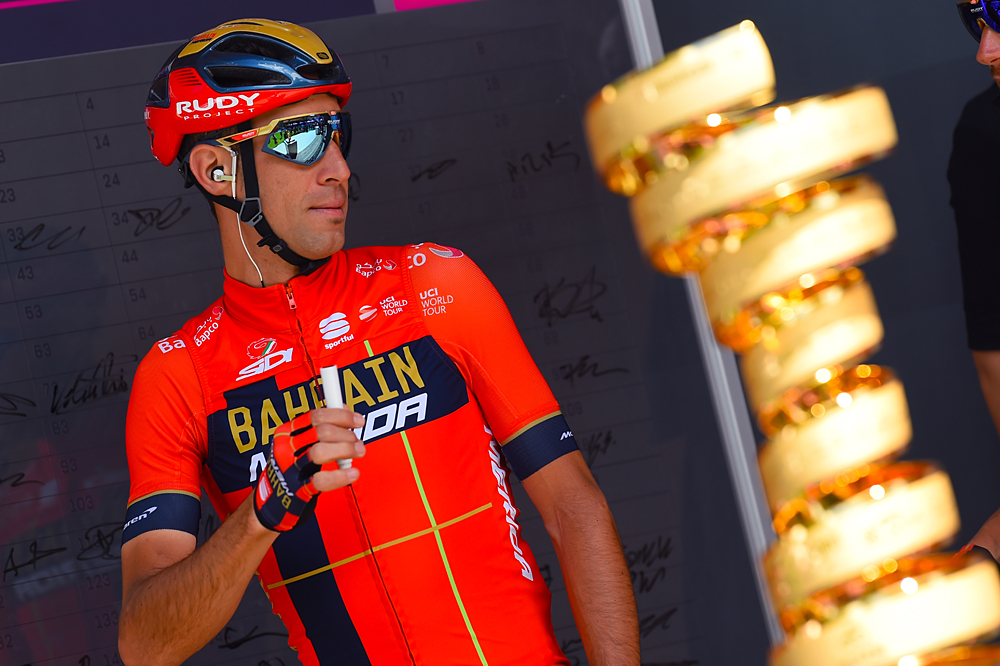
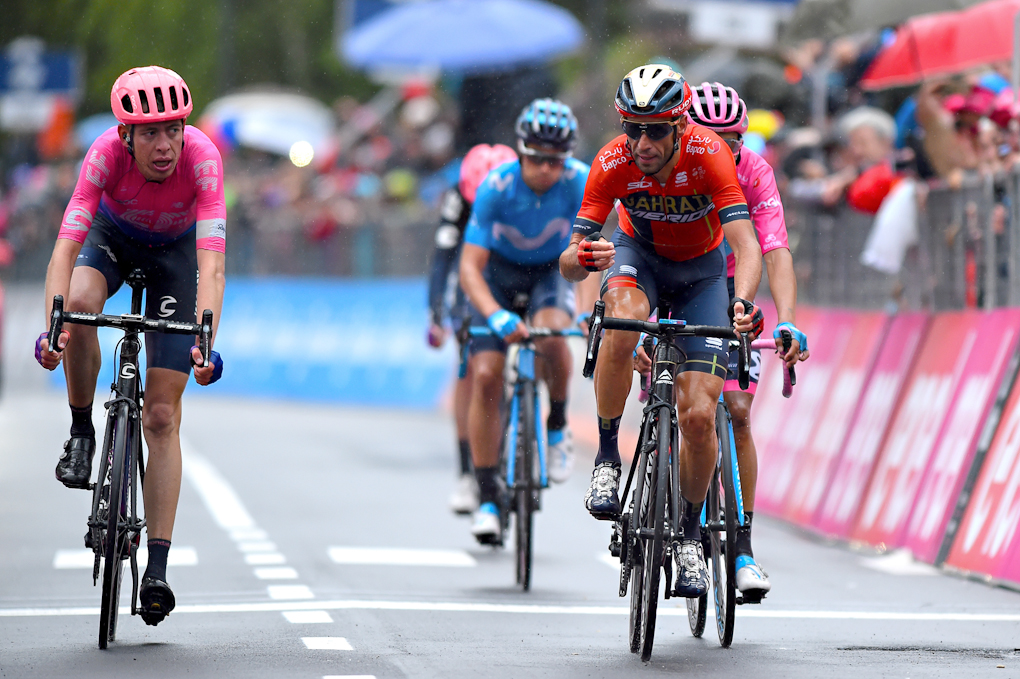
An omen of sorts for Vincenzo Nibali? In 2016, when he won his second Giro d'Italia with a long-range attack on the road to Sant'Anna di Vinadio on the penultimate stage, the first embrace of congratulations came from the parents of the man he had just divested of the maglia rosa, Esteban Chaves.
Small wonder, perhaps, that Nibali's face creased into a smile at the finish in San Martino di Castrozza on Friday when he learned that Chaves had won stage 19 of this year's Giro by attacking from the day's early break. "I'm happy to hear that. He's a guy who really deserves it," said Nibali. "His parents are here again too? I'm even happier, then."
Nibali finished safely alongside race leader Richard Carapaz (Movistar), Primoz Roglic (Jumbo-Visma) and Mikel Landa (Movistar) on the stage, 6:29 down on Chaves. As anticipated, the category 2 ascent to the finish did not provoke many gaps in the pink jersey group, though Miguel Angel Lopez (Astana) snatched 44 seconds with a stinging attack.
In the final kilometre or so, Nibali moved carefully to mark a late effort from Roglic, but one had the impression that the podium contenders were largely content to leave their swords in their scabbards ahead of the more sustained skirmishes expected in Saturday's Dolomite tappone to Croce d'Aune.
"There weren't long climbs on the route today. The finale was hard because it was fast, but it wasn't a place where you could make much of a difference," Nibali said afterwards. "Landa is riding very well. If he had attacked, then I would have followed, but he was riding for Carapaz. But tomorrow, I'm sure he'll want to play his hand for a spot on the podium."
Manghen
Nibali, like Landa, knows that he is fast running out of tomorrows. The hypothetical has weighed heavily over this lopsided Giro, where the mountain stages were crammed into the second half, but stage 20 to Monte Avena constitutes the final roll of the dice for Nibali, who begins the day some 1:54 off the maglia rosa of Carapaz.
The terrain on the road to San Martino di Castrozza may have offered few opportunities to isolate or discommode Carapaz, but the same cannot be said of Saturday's mammoth stage, which brings the race across five climbs – Cima Campo, Passo Manghen, Passo Rolle, Croce d'Aune and Monte Avena.
Get The Leadout Newsletter
The latest race content, interviews, features, reviews and expert buying guides, direct to your inbox!
A year ago, Chris Froome turned the Giro on its head with a startling display on the similarly demanding stage over the Finestre to Bardonnecchia. Earlier this week, Nibali was asked if he had plans to emulate Froome by risking everything on stage 20 – hypothetical podium place be damned – in a bid to become the oldest-ever winner of the Giro.
Nibali, of course, has some prior experience in this regard, though he needed two stages to assemble his own remarkable turnaround in 2016. On that occasion, he won at Risoul on stage 19 after launching his offensive over the Agnello, and then completed the comeback with the help of a strong Astana team at Sant'Anna di Vinadio the following day.
Giuseppe Martinelli was Nibali's directeur sportif on that Giro, and while he believes the terrain of Saturday's stage lends itself to long-range offensives, he warned that much will depend on the resilience of Carapaz, who has thus far seemed impregnable as race leader.
"Tomorrow there's the space and the climb to do it because the Manghen is one of the hardest climbs of the Giro. So there's the possibility of doing it, but you need a strong team to be able to make a selection on the first climb and then try. I think Nibali will have something in mind," Martinelli told Cyclingnews.
In 2016, Nibali was able to rely on men like Jakob Fuglsang, Tanel Kangert and the late Michele Scarponi to lay the foundations for his onslaught in the Alps, while twelve months ago, Froome's Sky team paved the way for his Finestre attack. At first glance, Bahrain-Merida do not possess the same strength in depth.
"For me, Vincenzo's team has improved in the last week. People like Pozzovivo and Caruso are going well now. They can do something, but we'll have to see if the opportunity presents itself," Martinelli said.
The success of Froome's attack last year owed much to the fact that the front group had been whittled down to the quick before he went clear. Once he accelerated, Thibaut Pinot was the only podium contender who had a teammate on hand to help with the chase. If Nibali is to attack on the Passo Manghen, whose summit comes some 116km from the finish, he must first try to rid Carapaz and Landa of their supporting cast.
"If they're able to respond to your first attack, then it becomes more difficult," Martinelli said. "Last year, Froome did an incredible attack on the Finestre but it also created a really small selection straightaway. Vincenzo's attack would need to make an immediate difference between the best riders. The problem is that Carapaz has an incredible ally in Mikel Landa, and I think it will be very difficult for Vincenzo to drop both of them."
The bitter irony of Nibali's Giro, of course, is that the deficit he is trying to recoup is at least partly of his own making. The tactical impasse between Nibali and Roglic at Ceresole Real and Courmayeur allowed Carapaz to slip clear on successive days and move into the maglia rosa, an oversight that is increasingly beginning to feel like a mistake of gargantuan proportions.
"It's easy to play the pools on Monday when the matches have already been played," Nibali's coach Paolo Slongo told Cyclingnews. "When you're in the race it's different. With the benefit of hindsight, it's easy to say we shouldn't have given him so much space. Besides, at that point, Caruso and Pozzovivo weren't at 100 percent and they couldn't help Vincenzo like they can now."
And so it all comes down to the quintet of mountain passes on Saturday's penultimate stage. A hitherto impeccable maglia rosa defending a sizeable lead against a more experienced rider. To this point, Carapaz has not betrayed the slightest impression of tiring limbs or fraying nerves, but as recent history shows, far stranger things have happened at this juncture of the Giro.
"If someone isn't good, they could lose a lot of time," Slongo said. "The level is so high so if someone has a crisis on Saturday, they could lose a lot."

Barry Ryan was Head of Features at Cyclingnews. He has covered professional cycling since 2010, reporting from the Tour de France, Giro d’Italia and events from Argentina to Japan. His writing has appeared in The Independent, Procycling and Cycling Plus. He is the author of The Ascent: Sean Kelly, Stephen Roche and the Rise of Irish Cycling’s Golden Generation, published by Gill Books.